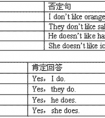用所给单词的适当形式填空1. Can you give me your _________(explain) for your absence?2. During the Spring holidays there are many _______ (culture)activities.-九年级英语
(5)数词+名词 400- metre race
(6)副词+现在分词 hard-working students
(7)副词+过去分词 well-known writers
(8)形容词+形容词 a dark-red jacket
(9)形容词+过去分词 ready-made clothes 成品服装
含有形容词的常用句型:
(1) It’s+adj. of sb. to do sth.
(good/ kind/nice/polite/clever/foolish… )
It’s very kind of you to help me.
(2) It’s +adj. for sb. to do sth.
(difficult/easy/hard/dangerous/usefulinteresting/important…)
It’s important for us to learn English well.
(3)下列形容词后常跟动词不定式
表示情感或情绪的形容词:glad,pleased,sorry,sad,afraid,thankful…
I'm glad to see you.
表示能力,意志或推测的形容词:ready,able,sure,certain…
I’m sorry to hear that.
某些现在分词和过去分词可作形容词
the moving story 令人感动的故事
a moved boy 一个被感动的男孩
a frightened child 一个被吓到的孩子
a frightening film 一个恐怖电影
考点名称:被动语态
- 语态:
是动词的一种形式,它表示主语和谓语的关系。
语态有两种:主动语态和被动语态。
如果主语是动作的执行者,或者是说动作是由主语完成的,要用主动语态;
如果主语是动作的承受者,或者是说动作不是由主语而是由其他人完成的,则用被动语态。 - 被动语态的构成:
被动语态的基本结构:
主语+be +过去分词(+by+动作的发出者)
① 一般现在时:am/is/are+过去分词
如:Trees are planted every year.
② 现在进行时 am/is/are+ being +过去分词
如:The road is being repaired.
③ 现在完成时 have/has + been +过去分词
如:The work has been finished.
④ 一般过去时 was/were + 过去分词
如:The story was told by him.
Many birds were killed last year.
⑤过去进行时 was/were+ being + 过去分词
如: The new house was being painted when I got home.
⑥过去完成时 had +been+ 过去分词
如: He told me that the work had been finished.
⑦一般将来时 will +be + 过去分词
如:The problem will be discussed tomorrow.
⑧ 过去将来时 would/should +be +过去分词
如: He said that the Christmas tree would be put up soon.
⑨情态动词的被动语态
情态动词+ be +过去分词
如:The problem must be solved soon.
Children should be taught to love animals. - 被动语态使用注意:
1. 不及物动词无被动语态。 如:happen, break down, come out......
What will happen in 100 years.
The dinosaurs disappeared about 65 million years ago.
2. 有些动词用主动形式表示被动意义。 如: write, sell, ride.....
This pen writes well.
This new book sells well.
3. 感官动词或使役动词使用省略to的动词不定式,主动语态中不带“to”,但变为被动语态时,须加上“to”。
例:make somebody do something→somebody+ be +made to do something
see somebody do something→somebody +be +seen to do something
A girl saw my wallet drop when she passed by.→My wallet was seen to drop by a girl when she passed by.
The boss made the little boy do heavy work.→The little boy was made to do heavy work by the boss.
4. 如果是接双宾语的动词改为被动语态时,直接宾语(物)作主语,那么动词后要用介词,这个介词是由与其搭配的动词决定。
He gave me a book.→A book was given to me by him.
He showed me a ticket.→A ticket was shown to me by him.
My father bought me a new bike. →A new bike was bought for me by my father.
5. 一些动词短语用于被动语态时,动词短语应当看作一个整体,而不能丢掉其中的介词或副词。
We can’t laugh at him. →He can’t be laughed at by us.
He listens to the radio every day. →The radio is listened to by him every day.
The nurse is taking care of the sick man. →The sick man is being taken care of by the nurse.
构成be+done. - 主动句变为被动句所遵循的4个步骤:
①把原主动句中的宾语变为被动句的主语
②把动词变为被动形式即be +过去分词,并注意其人称和数随主语的变化,而动词的时态则保持不变。
③原主动句的主语如需要则放在by后面以它的宾格形式出现(注代词的宾格),如不需要则可省略。
④其它的成分(定语、状语)不变。
不用于被动语态的情形:
①不及物动词没有被动语态
这类动词有take place, happen, come about, break out, appear, disappear, last, arise等。
例如:A fire broke out during the night.
②某些静态动词不用于被动语态
这类动词有have, lack, fit, hold, suit, resemble等。
例如:My shoes do not fit me.
③宾语为相互代词和反身代词时不用于被动语态
例如:We should help each other.
关于主动形式表示被动意义:
①系动词(如look, sound, smell, feel, taste, prove等)要用主动表被动,因为系动词为不及物动词,它们没有被动语态形式。
例如:The building looks very beautiful.
②当open, close, shut, lock, move, read, wash, clean, cook, cut, wear, carry 等用作不及物动词且表示主语的某种属性时,通常用主动形式表示被动意义。
例如:The book sells well.
③有的动词本身含有被动意味,通常用主动形式来表示被动含义。
例如:Her eyes filled with tears.
④不定式to blame, to let用作表语时,通常要用主动表被动。
例如:Who is to blame?
⑤某些“be+形容词+to do”结构中的不定式通常要用主动形式表示被动意义。
例如:The book is difficult to understand.
⑥不定式用于某些动词(如have, have got, get, want, need等)的宾语后作定语时,如果不定式的逻辑主语就是句子的主语,通常用主动形式表示被动意义。
例如:Do you have time to help us?
⑦在too...to do sth.和...enough to do sth. 这两个结构中,若主语与其后不定式为to do sth.被动关系,则该不定式通常用主动形式表示被动意义(有时也可直接用 被动式)。
例如:The writing is too faint to read.
⑧be worth后的动名词要用主动表被动。
例如:This movie is worth seeing.
⑨在need, want, require等少数表示“需要”的动词后的动名词用主动形式表示被动意义。
例如:The house needs cleaning.
表示“据说”的三类被动句型:
①It is said that...句式
例如:It is said that thirteen is an unlucky number.
②There is said that...句式
例如:There is said to be plenty of oil off our coast.
③sb./sth.is said that...句式
例如:Mr. Brown is said to have died of liver cancer. - 被动语态各时态构成 :
时态
被动语态
一般现在时
am/is/are+过去分词
一般过去时
was/were+过去分词
现在进行时
am/is/are being+过去分词
过去进行时
was/were being+过去分词
一般将来时
will be+过去分词
过去将来时
would be+过去分词
现在完成时
have/has been+过去分词
过去完成时
had been+过去分词
情态动词
情态动词be+过去分词
- 情态动词的被动语态:
一、理解含情态动词的被动语态的概念含情态动词的被动语态说明某个被动性动作所反映出的感情和态度。
初中阶段可用于被动语态的情态动词有“can、may、must、need、should”等,
分别表示“能够被……”,“可以被……”,“必须被……”,“需要被……“,应该被……”等。
二、掌握含情态动词的被动语态的不同句式的变换方法含情态动词的被动语态的疑问句、否定句的变化均借助于情态动词完成。
- 最新内容
- 相关内容
- 网友推荐
- 图文推荐
上一篇:Pandas eat ___.[ ]A. leave B. trees C. rice D. bamboo-七年级英语
下一篇:You must be very thirsty. Help yourselves to _______, children.[ ]A. have some teaB. have some cakesC. some cakesD. some tea-九年级英语
零零教育社区:论坛热帖子
| [家长教育] 孩子为什么会和父母感情疏离? (2019-07-14) |
| [教师分享] 给远方姐姐的一封信 (2018-11-07) |
| [教师分享] 伸缩门 (2018-11-07) |
| [教师分享] 回家乡 (2018-11-07) |
| [教师分享] 是风味也是人间 (2018-11-07) |
| [教师分享] 一句格言的启示 (2018-11-07) |
| [教师分享] 无规矩不成方圆 (2018-11-07) |
| [教师分享] 第十届全国教育名家论坛有感(二) (2018-11-07) |
| [教师分享] 贪玩的小狗 (2018-11-07) |
| [教师分享] 未命名文章 (2018-11-07) |



![He showed ______ in English last year. And he is ______ in English. [ ]A. interest, much interested B. interest, more interested C. interesting, much intere-九年级英语](http://www.00-edu.com/d/file/ks/4/2/bukeshumingci/2019-11-20/smalld20f93968df0b44b42c9ed33f1601c891574264013.jpg)

![—What would you like?— ______, please.[ ]A. Two bottle of water B. Two bottle of watersC. Two bottles of watersD. Two bottles of water-七年级英语](http://www.00-edu.com/d/file/ks/4/2/bukeshumingci/2019-11-20/smalle0cc3bee894611c3e5f894077c6e0d4b1574264462.gif)
